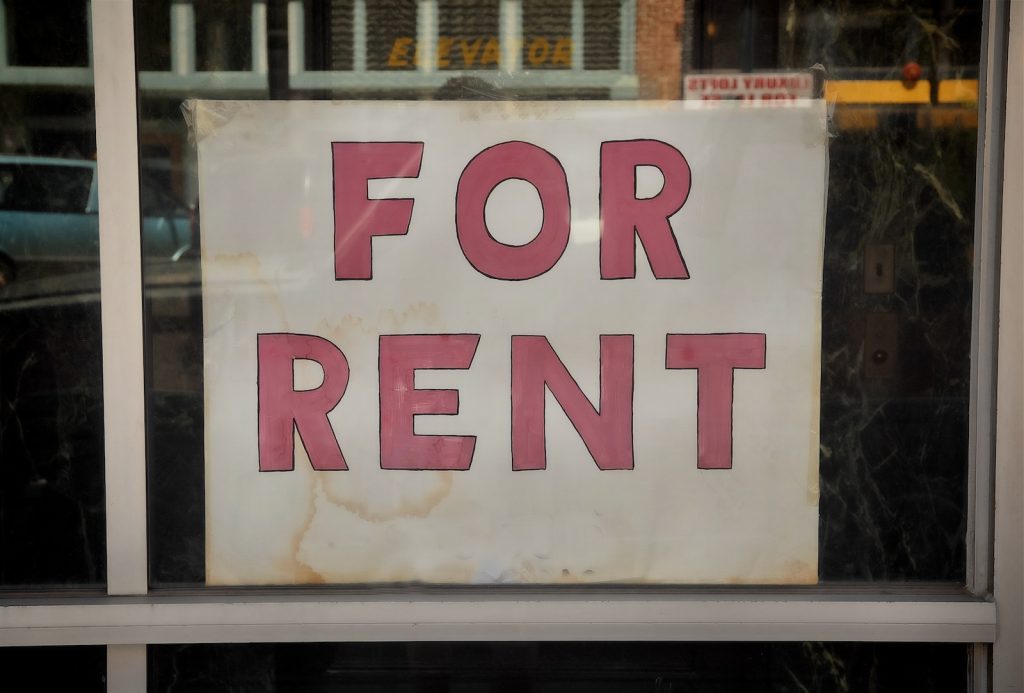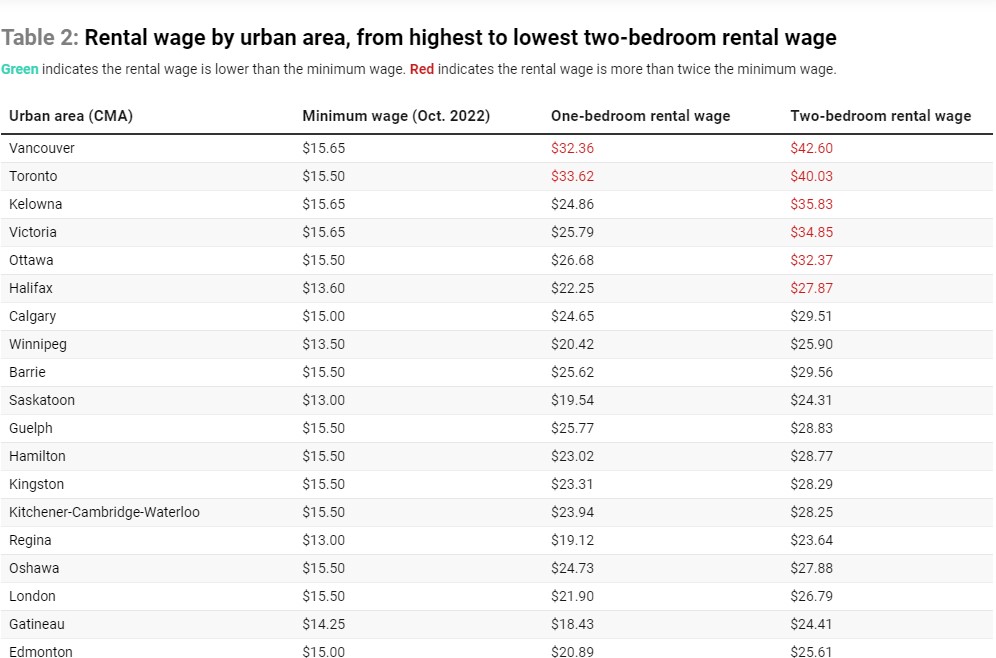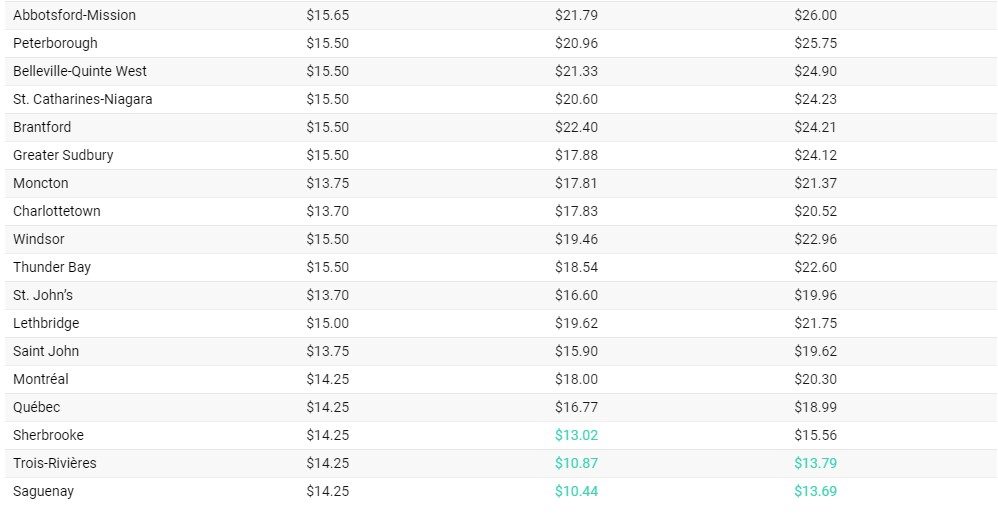Rental wages in Calgary ‘considerably’ higher than minimum wage: report

Posted Jul 18, 2023 6:56 pm.
Last Updated Jul 19, 2023 4:40 pm.
A new report from the Canadian Centre for Policy Alternatives shows that rental wages in 2022 were “considerably” higher than the minimum wage in every single province.
The report, published Tuesday, looked into 776 neighbourhoods in Canada within Canada’s largest cities, providing a “detailed picture” of housing affordability across the country.
It uses a rental wage measure that provides a “clear picture of the relationship between wages and rents” because it works out the hourly wage needed to afford rent while working a typical 40-hour week and spending 30 per cent of one’s income on housing.
“In other words, the rental wage is how much people need to earn to pay rent without spending too much of their income on it,” the report states.
Vancouver and Toronto are what the report calls the “worst culprits,” as two full-time minimum wage workers cannot afford a one-bedroom unit without spending more than 30 per cent of their combined income on housing.

Screenshot of the top rental wages according to a report compiling rentals in 2022 across Canada. (Courtesy Canadian Centre for Policy Alternatives)
The one-bedroom rental wage is lower than the minimum wage in three Canadian cities: Sherbrooke, Trois-Rivières, and Saguenay, all in Quebec.

Screenshot of the lowest rental wages according to a report compiling rentals in 2022 across Canada. (Courtesy Canadian Centre for Policy Alternatives)
For Calgary, the average wage for a two-bedroom apartment is $25.37, while a one-bedroom is $21.42. The province’s minimum wage is $15.00.
For example, according to data the organization compiled, someone wanting to live in the downtown/Eau Claire area would need to make $34.19 per hour, equivalent to working 119 hours making minimum wage.
In 2022, the average rental price was $1,222. Meanwhile, according to a recent rentals.ca report, the average rental in Calgary is around $1,700 for a one-bedroom and over $2,000 for a two-bedroom.
Read More: Students need housing for fall 2023 semester: UCalgary Student Union
Emily Campbell, who works with Home Space, a local housing charity, says the lack of affordable housing is contributing to the rental prices, and it’s only going to get worse.
“Calgary is not going to avoid these price increases with how many people are moving to Calgary. Under the guise of having this affordable housing,” Campbell told CityNews.
“We’re sitting at about 3.6 per cent non-market affordable housing here in Calgary, whereas bigger cities with higher demand have higher percentages.”
She says the report highlights how severely Calgary needs affordable housing.
WATCH: UCalgary students scramble to find housing
However, Ron Kneebone, a professor of economics at the University of Calgary (UCalgary), says there are a number of “assumptions” made with the study, saying someone with minimum wouldn’t be aiming for the average rental price.
“If I look at an apartment down at the lower end of the rent distribution, it was only $988 a month. That’s a $234-a-month difference. So that’s a sizable difference,” he explained.
“If you make that calculation instead, if you assume people rent that kind of apartment, then the minimum wage you would need in order to afford that apartment is only $19 and not the $24 reported.”
The number still falls four dollars higher than Alberta’s minimum wage, but Kneebone believes raising the percentage of income spent on housing is reasonable given the rental market.
He says the report assumes that someone spending more than 30 per cent of their income leads them to be housing burdened.
Using reporting from the Canada Mortgage and Housing Corporation, he says 40 per cent of one’s income is another measure to use, cutting down on the low end of rentals.
“So now if you take someone’s spending 40 per cent of their income on rent, and if they’re renting at the low end of the price scale, that it only takes $14 an hour to rent that apartment,” Kneebone said.
“Now, is that a concern? Sure. You’re still spending a lot of your income on rent. But it’s not undoable, and CMHC recognizes it’s not undoable.”
He also says the UCalgary School of Public Policy shows that housing is more of a “big city problem,” while renting in smaller communities is less of an issue and is much more affordable.
“I think to come to the conclusion that you need $24 an hour to be able to afford a one-bedroom apartment in Calgary is probably a pretty significant overstatement,” Kneebone said.
Related Stories:
-
Calgary reverses course, approves affordable housing recommendations after criticism
-
Rental affordability crisis: How Calgary is moving forward
-
Rental affordability crisis: Why has rent gone up in Calgary?
The City of Calgary recently reversed a decision to adopt affordable housing recommendations.
The Housing and Affordability Task Force was established to enhance approaches to improving housing affordability and increasing access to affordable housing.
It also recommends that the city implement a type of zoning for residential areas, making it easier to build multi-family housing.
Following the reconsideration, council has said it will be moving forward with the recommendations slowly to investigate how the zoning changes would affect Calgarians.
-With files from Dione Wearmouth and Andrea Montgomery







